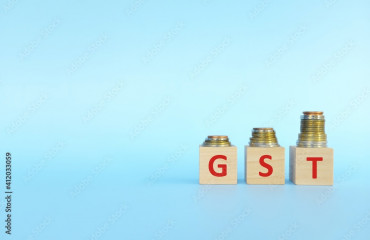
New Delhi, Dec 18 (PTI) Swadeshi Jagran Manch (SJM) has dubbed the proposal to introduce 35 per cent GST on "sin goods" like aerated beverages and tobacco products as a "bad idea" as it would lead to smuggling and loss of revenue for the country.
Proposal to impose 35% GST on 'sin goods' not a good idea: SJM

New Delhi, Dec 18 (PTI) Swadeshi Jagran Manch (SJM) has dubbed the proposal to introduce 35 per cent GST on "sin goods" like aerated beverages and tobacco products as a "bad idea" as it would lead to smuggling and loss of revenue for the country.
Besides, other bodies like All India Consumer Products Distributors Federation (AICPDF) and Indian Sellers Collective -- an umbrella body of trade associations and sellers across the country -- have raised concerns on the recommendations of the GoM on GST rate rationalisation.
Earlier this month, the Group of Ministers (GoM) recommended a special rate of 35 per cent on sin goods like aerated beverages, cigarettes, tobacco and related products. The GoM headed by Bihar Deputy Chief Minister Samrat Chaudhary also suggested rationalisation of tax rates on apparel.
"Another slab in GST, in the name of luxury and sin goods is primarily a bad idea, which will defeat the very efficiency principle of taxation. Already, a need is being felt among economists that the present number of slabs should be reduced, and the highest 28 per cent slab be abolished," SJM national co-convenor Ashwani Mahajan said.
If the upcoming GST Council meeting approves this higher slab, it would make GST even more complex and inefficient and encourage smuggling.
The 55th GST Council meeting to be held on December 21, 2024 in Jaisalmer, Rajasthan may consider this agenda along with exemption of GST on insurance, including health.
Mahajan reiterated the fight against tobacco, but said the issue was not that simple and required a multi-pronged approach.
He pointed out that high taxes on cigarettes have led to a huge black market, which would only expand due to this move.
"China is the biggest beneficiary of this black market of smuggled cigarettes, which are way more harmful than legal cigarettes," he said.
Concerns about the economic impact of the health implications of such high taxation were also raised.
"When legal cigarettes or 'bidis' become unaffordable, people switch to lower and more harmful grades of tobacco, which is more harmful," he said.
The All India Consumer Products Distributors Federation (AICPDF) and the Indian Sellers Collective also opposed the proposal, saying it would harm small retailers, increase the burden on consumers, and promote black market activities.
"We call upon the government to prioritize their welfare by simplifying GST compliance, reducing rates thoughtfully, and ensuring a stable, equitable business environment," AICPDF national president Dhairyashil Patil said.
Echoing similar views Indian Sellers Collective said creation of a new slab of 35 per cent would be counterproductive.
"All the gains of the GST regime will be wiped out, with permanent damage to the vast age-old retailer network of India if the GoM's recommendations are adopted by the upcoming GST Council meeting," Abhay Raj Mishra, Member and National Coordinator, Indian Sellers Collective, said.
